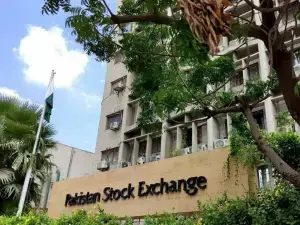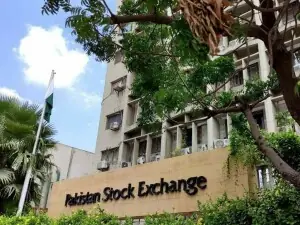Britain's top share index will rise through next year but continue to underperform European peers as its heavy exposure to emerging markets hampers returns, a Reuters poll found. The FTSE 100 is set to rise to 6,700 by the end of 2013, according to the median prediction in the survey of over 40 traders, strategists and fund managers taken in the past week - a 5 percent rise on Tuesday's close of 6,365.83.
It is predicted to climb to 6,900 by June and set a new record high in the second half of 2014 to close out the year at 7,100, above the previous peak of 6,950 set in late 1999. Still, those gains would fail to keep pace with the STOXX Europe 600 index made up of the continent's major shares. Uncertainty over US debt ceiling talks and fear of a potential default remains the biggest cloud over the outlook and forecasts for end-December range from 6,050 to 7,015, suggesting anything from a 10 percent gain to a 5 percent drop.
"The potential exists for a sharp sell-off in markets should the US government default in mid-October. This would alter the base from which the FTSE 100 would have to recover," said Mike Franklin, head of investment strategy at Beaufort Securities.
Easy monetary policy from central banks helped stock markets hit multi-year or all-time highs in 2013. The FTSE posted a 13-year high in May, just 1.1 percent shy of a new record level. However, while major European indexes continue to surpass multi-year peaks - Germany's DAX hit a fresh record high in September - the FTSE is currently 8 percent off its 2013 peak and unlikely to hit it again this year, the poll found.
The FTSE 100 derives nearly 40 percent of its revenues from emerging markets, the majority of which comes from Asia, a recent Morgan Stanley note showed, with a large chunk from China. A growth slow-down there has proven particularly acute for the mining sector, which makes up 10 percent of the FTSE 100. The prospect of lower sales has seen metals prices slide and left the STOXX Europe 600 Basic Resources sector the worst performer so far in 2013, down around 20 percent.
BR100
16,307
Increased By
236.2 (1.47%)
BR30
51,537
Increased By
1163.4 (2.31%)
KSE100
157,953
Increased By
1775.7 (1.14%)
KSE30
48,199
Increased By
520.5 (1.09%)






















Comments
Comments are closed.